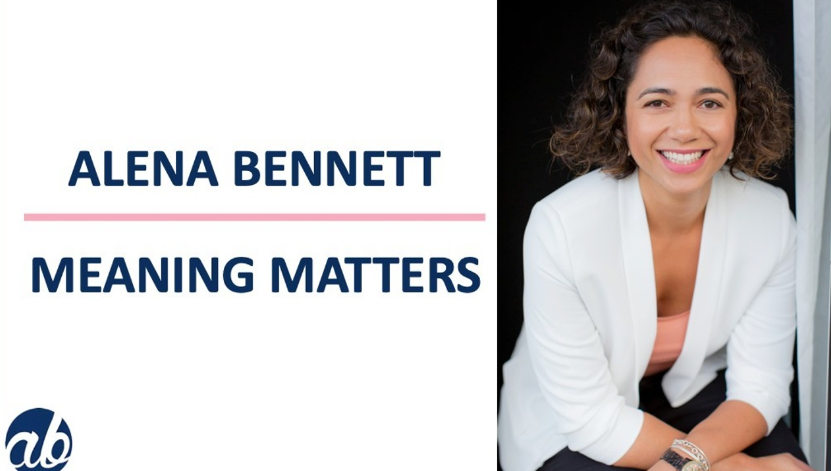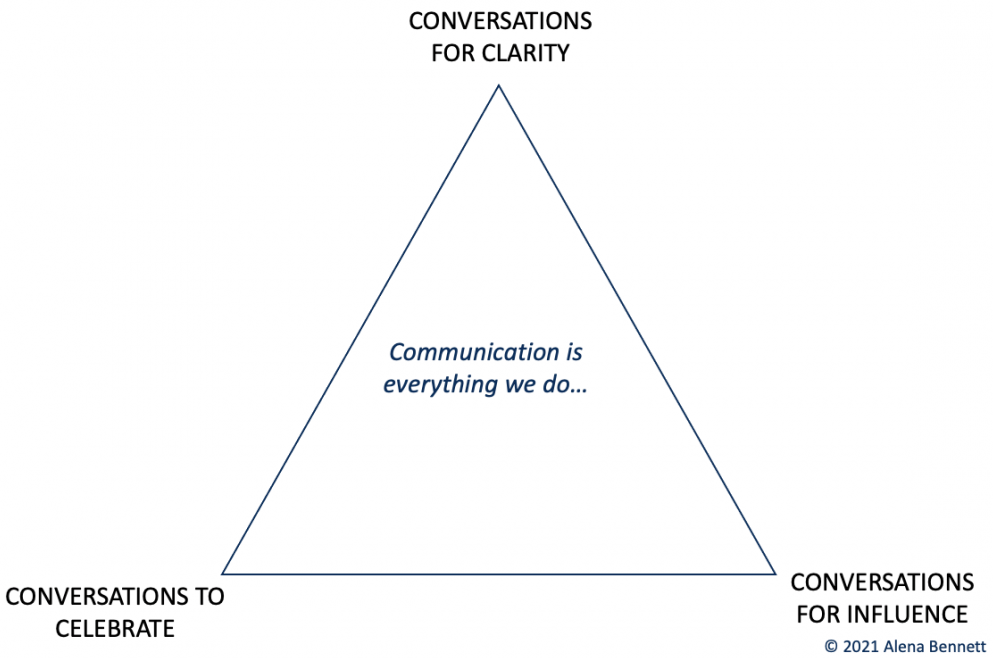Does your team Finance Leadership Team (FLT) stress about not meeting deadlines? About how to tell the business that the analysis they have requested will take longer than expected? Do they worry that they will be perceived as 'no people' when all they want to be in enablers of performance?
How does it feel when you sit in a team meeting and you watch one of your team members sit back and disengage from a conversation because they don't like what they hear?
How much time and effort does your team spend not having difficult conversations? What does this cost you?
There is varying research that says it costs between $1,500 and $7,500 for every difficult conversation that isn't had. Imagine that. Multiply that by the number of your staff multiplied by 260 (to assume 1 per day per staff member which, to be honest, it probably being conservative) - that's a lot! And that's not to mention the impact in other areas such as relationships, trust and absenteeism.
Avoiding difficult conversations slow us down
One of the biggest challenges of a finance function is that they almost have to have split personalities. One one hand, they are required to be considered, identify problems and be somewhat risk averse to ensure that the numbers are accurate and have integrity. On the other hand, they need to drive performance, to identify commercial opportunities and unlock value for their organisation. This split personality can be a little like watching a Learner drive a manual car - stop, start, stop, start (i.e. the 'bunny hop').
How that manifests itself in an organisation, is that we can have great commercial conversations with the business, advising them on how they can deliver better performance by pulling at different levers. Then we can go back to our desks, only to have an email sitting in our inbox that informs you that, no - that's not going to be possible, for any number of reasons. Our heart sinks, our stomach drops.
You spend the next few hours thinking about how you're going to have the conversation to let them know the bad news. That it's a compliance thing, 'it's the accounting standards' - something they don't understand or care about. You wonder what it's going to do for your reputation, how you're going to recover, how to ensure that they continue to consult with you about commercial deals well before the eleventh hour.
It ties you in knots and wastes precious time.
Avoiding difficult conversations hold us back
Most of us have been burned before. In one way or another, we have stuck our neck out, been brave and taken a chance. And we've endured painful consequences. Or we've summoned the courage to request an improvement to conditions, we've been told one too many times that change will happen...and it never does. The next leader comes through, they share with us a vision....and again, the organisation defaults to type.
So we stop. Stop pushing boundaries, stop going the extra mile. We stop having difficult conversations. Thus breeds stagnation and mediocrity.
Does this sound familiar?
Difficult conversations arise out of a lack of clarity
They happen because one person expected one thing, and another expected something else. How much time do you spend 'managing expectations'. It's almost a full time job!
This is conversation #1: Conversations to create clarity
Difficult conversations arise because we have a tendency to shortcut conversations to create clarity because we are so crunched for time. We make assumptions, rely on heuristics (shortcuts of the brain) and that when people nod their head, they fully understand. Sometimes, even, we make the assumption that if we've sent an email with some information in it, that email has been read, understood and ready to be applied.
The energy behind conversations to create clarity is static. Its focus is to ensure there is a sense of understanding between the parties involved. You cannot move away from this conversation until that understanding has taken place. Because this is what causes difficult conversations. This is what slows your team down and holds you back.
Once you have that shared understanding, you can move forward to the other 2 conversations that your FLT need to have.
Conversation #2: Conversations for influence
CFOs and their teams have to influence every day. Internally and externally. It's a huge part of the job and significant measure of a CFOs success. Conversation to influence are energetic - they're about movement and action: from one state or position to another. They are about change.
When difficult conversations arise here, we need to step back and ask ourselves 'What conversation to create clarity do I need to have now?'. We don't push forward and have more conversations to influence, because all you do then is widen the understanding or expectation gap.
Keep doing this dance until your task is complete: one way or another. Because then you're ready to have the 3rd and final conversation.
Conversation #3: Conversations to celebrate
In every finance team I work with, for every CFO I support, they have a desire to celebrate more. Seriously - it comes up in every session when I ask 'what do you need to do more of?'. But they don't make the time to do so. Because they perceive celebration as 'fluffy, nice to have'. Discretionary and less important than the next big thing.
It's so not.
Conversations to celebrate are about what happens at the end - whether it be success or failure. They are about growth - and celebrating the opportunity for growth that a certain task or milestone has provided us. It is how we encourage and practice 'failing forward' - we celebrate. It's how we reward and recognise achievement - we celebrate. It's the closing conversation to the task or activity. It's not about the party - it's about recognition and learning which is what stimulate performance growth so we are all better next time. It's about reflection. You might know it as a debrief. But when you refer to it as a conversation to celebrate it evokes a sense of achievement and progress. Which is what allows you to raise the bar.
Conversations for clarity
Conversations for influence
Conversations to celebrate
Does your team know there are only 3 conversations they need to be having?
Does your team struggle to have difficult conversations?



